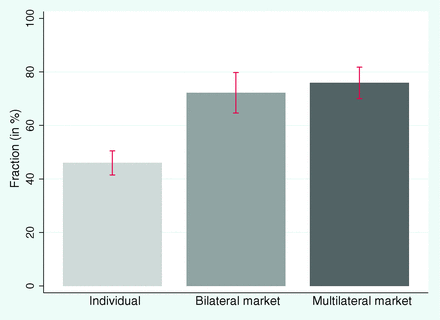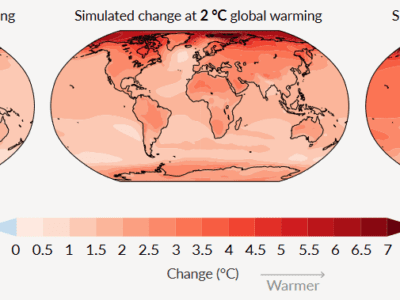On our reading list: Market framing and morality
Economists offer experimental evidence that market transactions blunt moral intuitions

Take my views on this study with a grain salt, because it confirms my priors. I’ve long agreed intuitively with Mark Sagoff that people make different choices in market settings than in more public-regarding settings. And I’ve been fascinated over the years by the empirical evidence that confirms that intuition, including the work of Samuel Bowles and Robert Franks showing that market framing and economics training increase self-interested behavior. So I’m primed to believe the claims of this paper, which appeared this spring in Science (subscription required). But read it and judge for yourself.
The study, authored by Armin Falk and Nora Szech, approaches the question of markets and morality through the lens of third-party effects. The authors were interested in whether market framing would reduce the value participants would place on effects of their choices on third parties. To get at that question, they asked experimental subjects in three different settings whether they would kill a mouse for monetary gain. Each of the subjects was told that they controlled the fate of a single mouse. They were shown pictures of a mouse and video of a mouse being humanely killed. Some of the subjects were asked as individuals to choose between receiving 10 euros in exchange for allowing their mouse to be killed. Others were put in a bilateral bargaining situation, where if they reached agreement with a buyer their mouse would be killed. A third group were placed in a multilateral market with 7 buyers and 9 sellers.
In the individual treatment, just over 45% of the subjects were willing to trade their mouse’s life for 10 euros. But in market bargaining situations, bilateral or multilateral, that number was significantly higher (72% and 76%, respectively). The price demanded by sellers in the multi-lateral market was only 5 euros. The experimenters did not find the same type of market framing effect on price or willingness to trade when they used a “morally neutral” commodity, a credit at a local store.
The authors speculate that the framing effect they find may be due to reduced perceptions of individual responsibility, what the market context communicates about social norms, and/or the fact that market transactions focus attention on bargaining as opposed to the consequences of the bargain. They note that their experiments may underestimate market effects because even the individual treatment focused the subjects on money, which in some other experiments has been shown to itself promote more self-centered behavior. I think their conclusion is too broadly framed — they claim to have shown that “markets erode morals,” which implies a permanence to the effects on individual thinking or action that their experiments can’t support. But I’m inclined to think their results do provide evidence that placing individual decisions in a bargaining context can reduce the checking effect of moral intuitions.
So what does this have to do with environmental policy? It’s important to the choice of policy instruments. Since the 1980s, markets have become the darling of policy wonks in all kinds of environmental contexts, from pollution prevention to biodiversity protection. That’s surely not completely misguided. Markets can do a lot for us, as Falk and Szech are careful to acknowledge. But we should be careful both about what problems we use them to address and how we use them. In fact, most of the market-based strategies currently in use in U.S. environmental law are “cap-and-trade” type strategies, in which a political process sets the acceptable impacts and the market is used only to distribute those impacts among potential claimants. I’m trying to think through whether this study has any implications for that strategy, but I’m not sure I see a lot of relevance. It may reinforce the idea that we need regulatory structures to prevent hotspots, because it suggests that market participants won’t worry as much about those as their own moral frameworks would call for, even if the possibility is explicitly part of the bargaining structure. I also have a vague sense that this study, and others in this vein, may be important in thinking about the role of “ecosystem services” approaches and rhetoric in conservation policy. If those approaches involve bargaining, it’s certainly troubling to think that they may encourage bargainers to undervalue (from an ethical perspective) the services they are selling.
My major reaction, though, is that I would love to see more work on the long-term effects. Although this paper doesn’t have evidence for the claim, I do worry that consistent reliance on market transactions may indeed “erode morals,” coarsening our view of what has a dignity rather than a price incrementally over time. If we view environmental protection as a long-term process, as I think we must, that seems to me a more important question than the effect of market framing on any individual decision.






Reader Comments